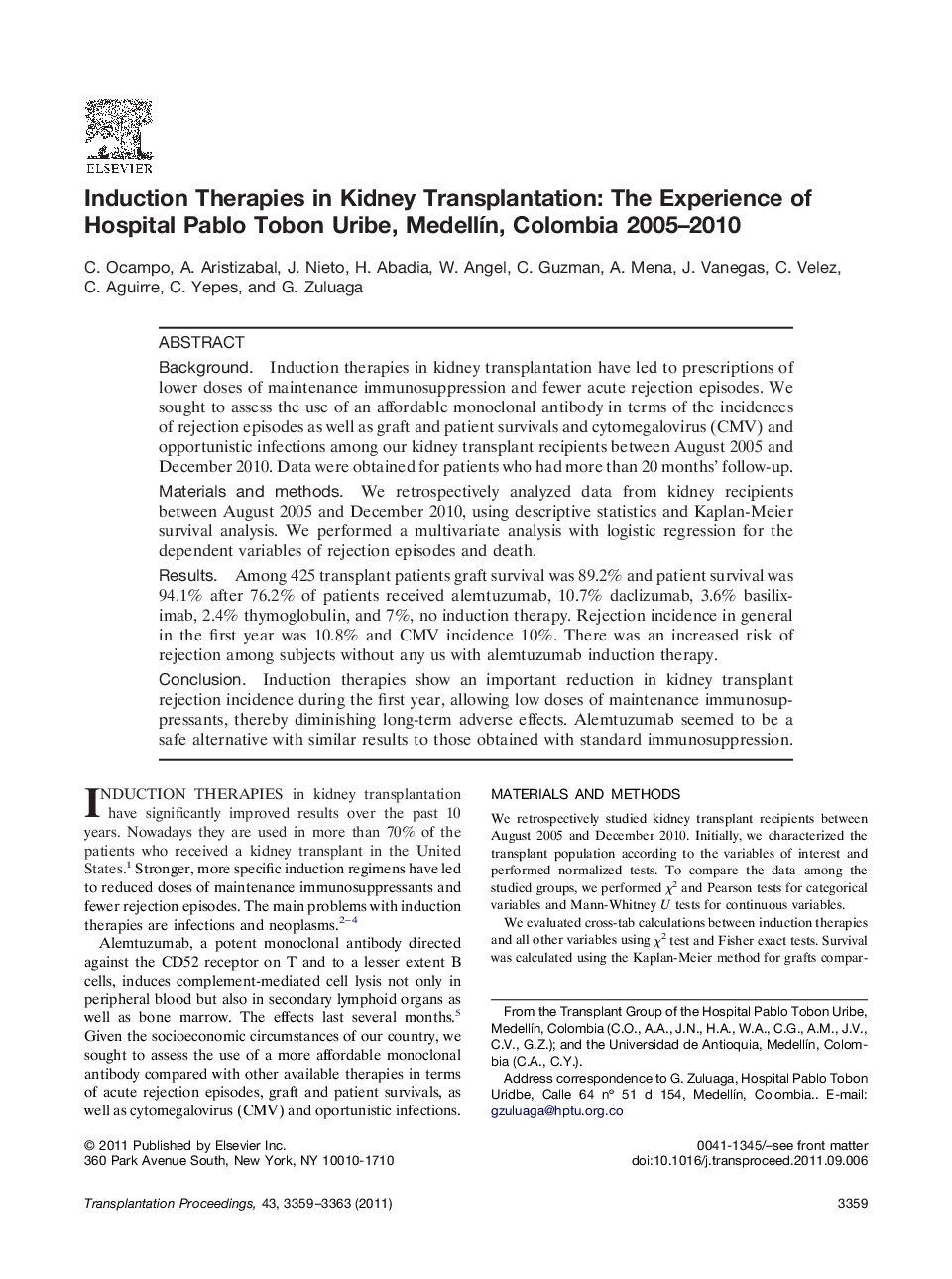| Article ID | Journal | Published Year | Pages | File Type |
|---|---|---|---|---|
| 4258596 | Transplantation Proceedings | 2011 | 5 Pages |
BackgroundInduction therapies in kidney transplantation have led to prescriptions of lower doses of maintenance immunosuppression and fewer acute rejection episodes. We sought to assess the use of an affordable monoclonal antibody in terms of the incidences of rejection episodes as well as graft and patient survivals and cytomegalovirus (CMV) and opportunistic infections among our kidney transplant recipients between August 2005 and December 2010. Data were obtained for patients who had more than 20 months' follow-up.Materials and methodsWe retrospectively analyzed data from kidney recipients between August 2005 and December 2010, using descriptive statistics and Kaplan-Meier survival analysis. We performed a multivariate analysis with logistic regression for the dependent variables of rejection episodes and death.ResultsAmong 425 transplant patients graft survival was 89.2% and patient survival was 94.1% after 76.2% of patients received alemtuzumab, 10.7% daclizumab, 3.6% basiliximab, 2.4% thymoglobulin, and 7%, no induction therapy. Rejection incidence in general in the first year was 10.8% and CMV incidence 10%. There was an increased risk of rejection among subjects without any us with alemtuzumab induction therapy.ConclusionInduction therapies show an important reduction in kidney transplant rejection incidence during the first year, allowing low doses of maintenance immunosuppressants, thereby diminishing long-term adverse effects. Alemtuzumab seemed to be a safe alternative with similar results to those obtained with standard immunosuppression.
